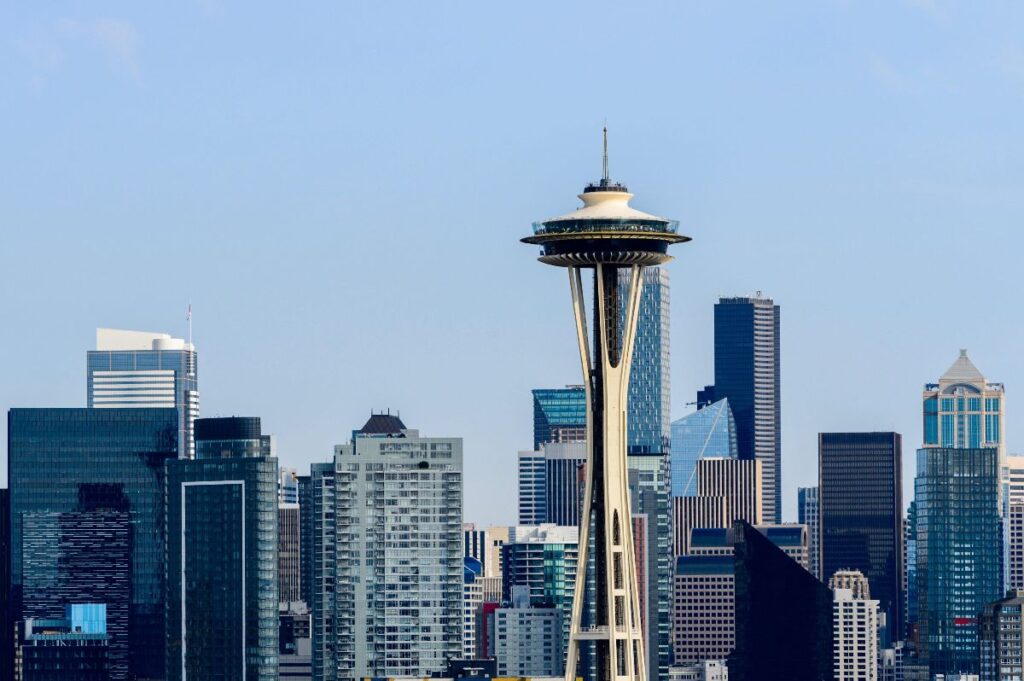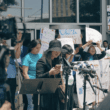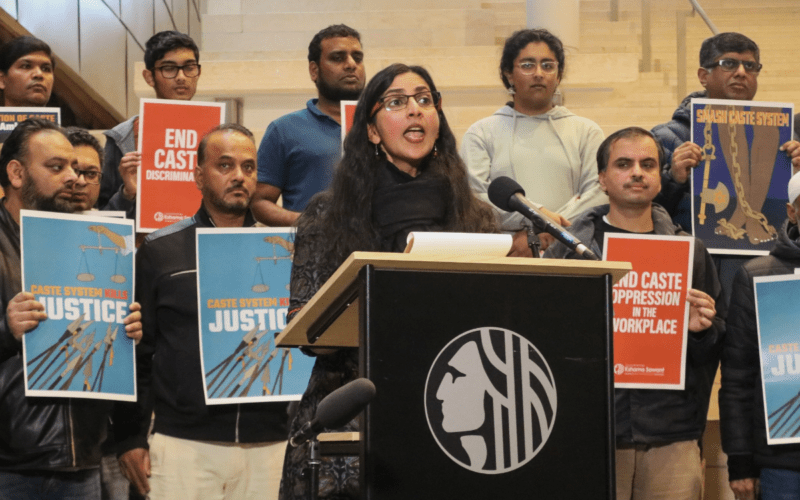Sign up here to receive The Yappie's weekly briefing on Asian American + Pacific Islander politics and support our work by making a donation.
The Seattle City Council passed an ordinance last month that explicitly adds caste to the list of classes protected under existing anti-discrimination policies. The measure, approved 6-1, reflects a nationwide push to recognize and ban caste discrimination.
Caste, an oppressive system of religious and social stratification prevalent in South Asian communities, was solidified under British rule in the late 19th and early 20th centuries. Though it was formally abolished following India’s achievement of independence in 1948, the stratification remains pervasive among South Asians around the world.
- Individuals are ranked in four main classes in a hierarchical tier of “high” to “low” castes, with “lower” castes historically denied the same kind of access to resources and opportunities. Outside of the system are Adivasis, who are Indigenous South Asian people, and Dalits, who were formerly known as “untouchables” and were considered the “lowest” in status.
? Seattle’s new law: Sponsored by Seattle City Councilmember Kshama Sawant, one of a handful of socialists elected in a major U.S. city, the ordinance aims to enforce protections against caste-related bias in housing, at work, and in other public spaces.
- People who experience caste-based discrimination at work can now sue their employers. Their cases will be processed by the Seattle Office of Civil Rights.
- Worth noting: The measure does not appear to target a single community but aims to ban discrimination in caste systems present among Buddhists, Christians, Hindus, Jains, Muslims, and Sikhs.
- More than 150,000 South Asians live in the state of Washington, where Dalit activists say many people—particularly those in the tech sector—face unregulated caste-based discrimination, writes Associated Press’ Deepa Bharath.
- Two out of three Dalits surveyed in a 2018 report by Dalit rights group Equality Labs reported that they experienced unfair treatment at their workplace because of their caste.
Opponents of the effort to ban caste-based bias, largely led by Hindu American groups, say that the new ordinance unfairly singles out the South Asian community, which already experiences its share of discrimination.
- Samir Kalra, managing director of the advocacy organization Hindu American Foundation, said in a statement that the legislation takes a step toward “institutionalizing bias against all residents of Indian and South Asian origin.”
- HAF attorneys further claimed in a press release after the ordinance passed that it violates the U.S. Constitution’s “guarantees of equal protection and due process that prohibit the state from treating disparately people on account of their national origin, ethnicity, or religion.”
- Last month, members of the Coalition of Hindus of North America signed a petition to urge Seattle to vote against the bill, arguing that the bill itself misrepresents South Asians as a heavily discriminatory group.


A growing movement: Seattle’s ordinance, the first of its kind in America, is likely to inspire other cities to consider doing the same. Colleges such as Harvard, Brown, Brandeis, and the University of California have already taken steps to explicitly ban caste discrimination on their campuses in recent years.
- What we’re watching: California regulators sued Cisco Systems alleging that two upper-case Indian American managers discriminated against a Dalit employee. Though California doesn’t consider caste a protected status, the court case could have major implications for caste-related bias in the workplace.
- States including Colorado and Michigan have also begun taking steps to recognize Dalit activism by declaring April 14 a day to honor Dr. Bhimrao Ramji (B.R.) Ambedkar, an advocate for abolishing the caste system who helped draft the Constitution of India.
?️ In their words: “We South Asians have so many difficult historical traumas. But when we come to this country, we shove all that under the rug and try to be a model minority,” Thenmozhi Soundararajan, founder and executive director of Equality Labs, told Associated Press. “The shadow of caste is still there. It still destabilizes lives, families and communities.”
This story appeared as "The Big Story" in The Yappie's March 6, 2023 newsletter.
The Yappie is your must-read briefing on AAPI power, politics, and influence, fiscally sponsored by the Asian American Journalists Association. Make a donation, subscribe, and follow us on Twitter (@theyappie). Send tips and feedback to [email protected].









